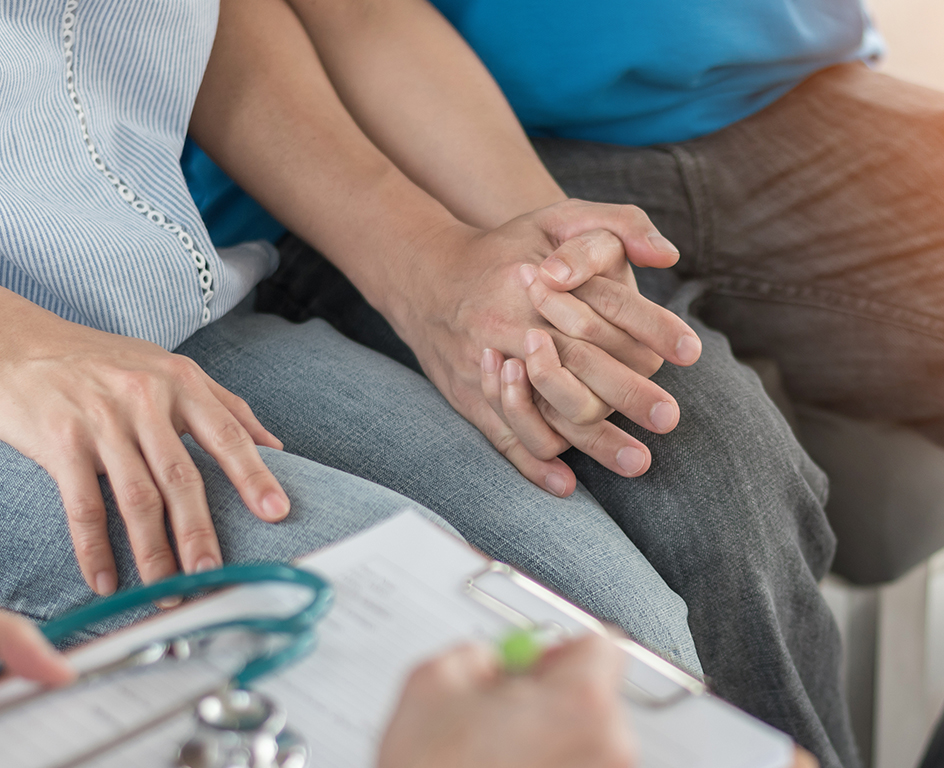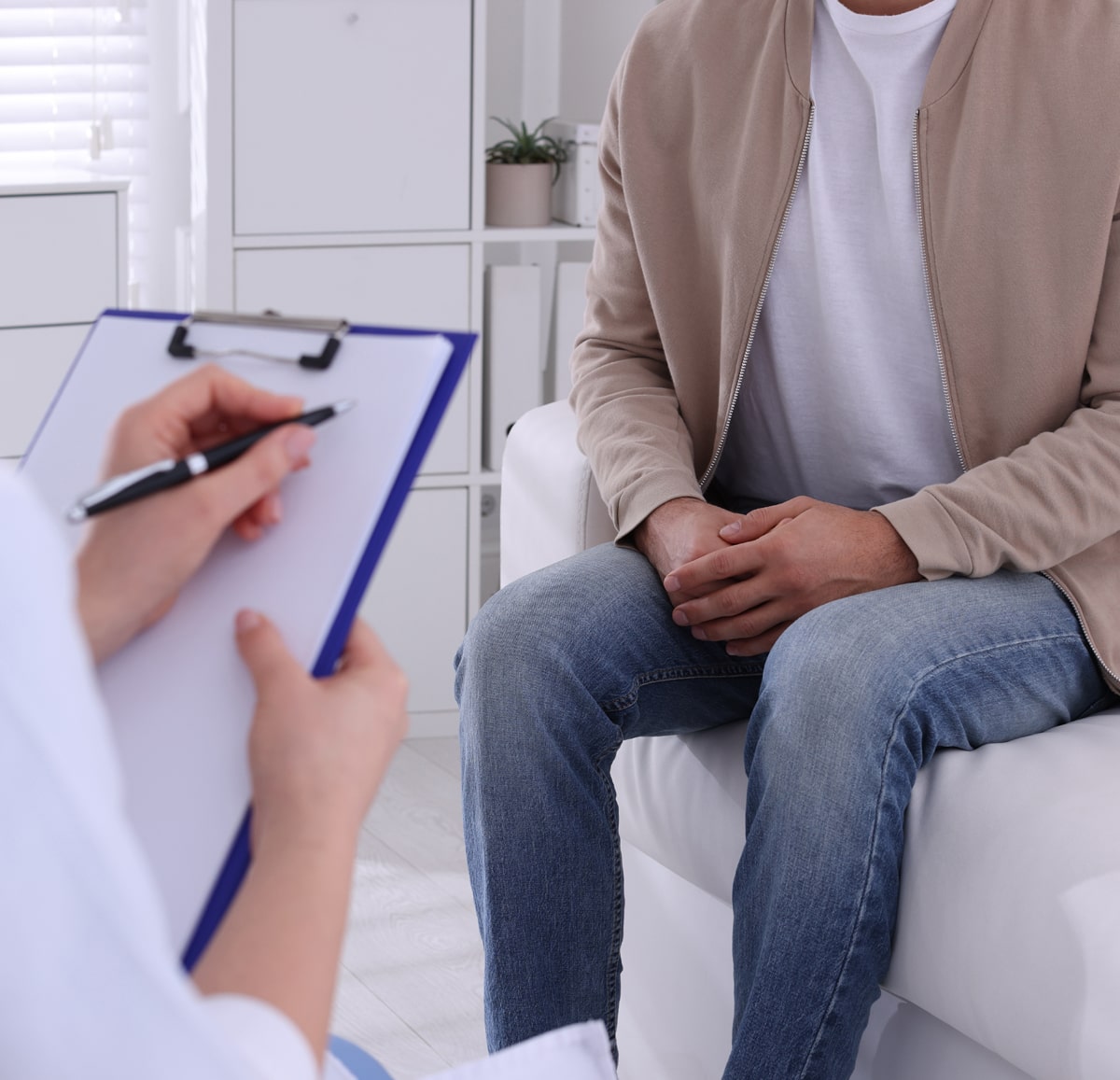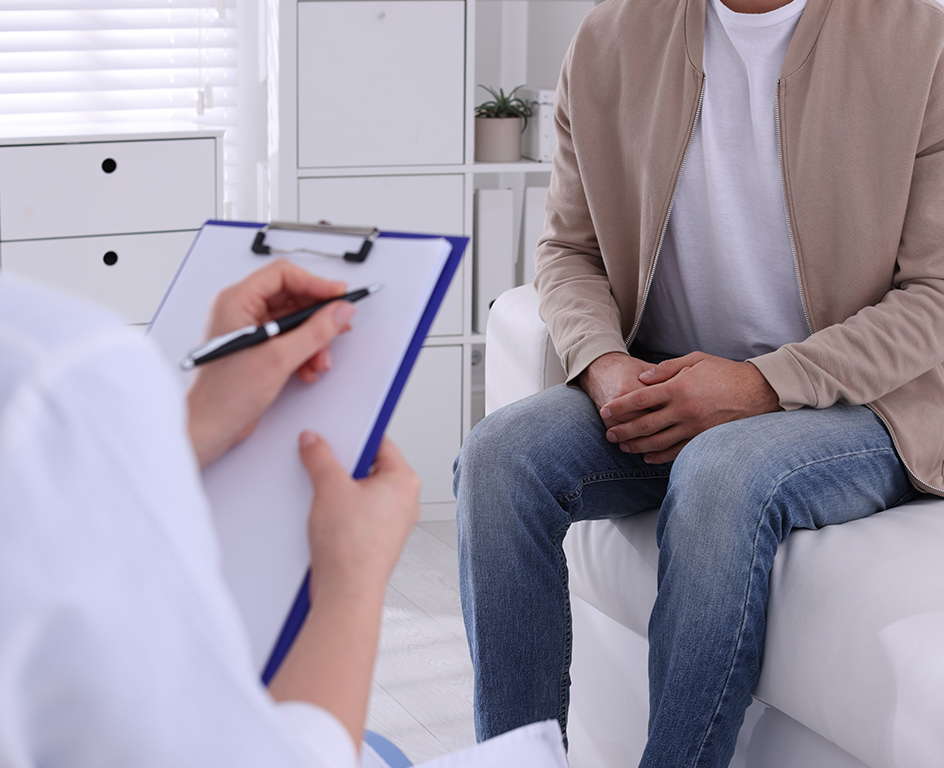Located at 20 Old Brompton Road – Just Steps from ![]() South Kensington Tube. Easy Access, Always.
South Kensington Tube. Easy Access, Always.
GP London is a leading private sexual health clinic in Kensington. We provide private STD screening and STI testing in a comfortable and safe environment where you can feel free to discuss your concerns with a private sexual health specialist about your sexual health concerns.
We have doctors, health assistants and nurses who can care for your reproductive and sexual health. Our healthcare experts are diligent and committed to providing the right care for every situation.
Our highly trained doctors understand that STD and STI testing and treatment are private issues, so we guarantee complete privacy and discretion. We will help you choose the most suitable sexual health screening for your concerns. If you have an emergency, you can book a same-day appointment with our doctor or walk in during our working hours.

If you need a consultant specialist for contraceptive options, our clinic is the right place to visit, and we also offer pregnancy blood testing for your peace of mind. Our testing is with the gold standard for sexual health testing – PCR (polymerase chain reaction). You shouldn’t confuse this test with the less reliable and cheaper home testing kits or rapid tests.
While other sexual health services cut costs by opting for cheaper tests which expose patients to the risk of unreliable results, we are committed to offering our patients first-class services. We never compromise on the clinical quality of our testing.
We perform all our analyses with PCR testing at a renowned laboratory in Kensington. We have our samples collected in person by courier service from our laboratory, and the sample is usually analysed in the lab within an hour from the appointment at the clinic.
If you need same-day STI testing near you, feel free to visit our sexual health clinic in Kensington.
Our services also include
Weekend, same-day and evening walk-in services

You can have your STD testing in Kensington at GP London. Visit our clinic or call 020 70434317 to book an appointment with our sexual health specialist.

Sexually transmitted infections, or STIs, are also known as venereal diseases (VD) or sexually transmitted diseases (STDs). The infections are transmitted via vaginal, oral and anal sex. Generally, STIs don’t show symptoms at the early stages, which makes regular screening important.
The standard blood tests for Hepatitis, Syphilis and HIV have a 24-hour turnaround time, while urine cultures for Mycoplasma, Gonorrhoea, Chlamydia, Gardnerella, Herpes I and II, Trichomoniasis and Ureaplasma take up to 2 – 5 days for an accurate result.
We also have expedited services that give HIV, Syphilis, Gonorrhoea, Chlamydia and Hepatitis result within four hours, but this service incurs an extra fee.
In some cases, STDs occur without symptoms or signs. The consequences may be severe if the STD is left undetected and untreated. This makes regular screening necessary if you are sexually active. Bacterial infections rarely self-resolve but are curable if treated early. Other vital infections, such as HIV and herpes, aren’t curable, but you can manage their symptoms with the right medication.
Yes, you can. You can contract herpes by kissing someone in the mouth. There is also a small risk of contracting HIV through kissing if the infected person has a cut or sore on the month, and you also have the same.
Testing for sexually transmitted diseases is necessary to know if you have an infection, as most STDs show no symptoms. If you are sexually active, it includes oral, anal and vaginal intercourse. When your doctor asks if you are sexually active, they want to find out if you have had sex since your last screening that may have exposed you to pregnancy and an STD.
STD testing is a vital part of your routine health check, so if you have serious concerns about an STD, visit your doctor immediately for testing.
Many STDs show no symptoms or signs, and the symptoms are hardly noticeable when they occur. However, if you have the following symptoms, visit your doctor.
You can take different steps to reduce your risk of getting an STD
When you’re having sex with only one person you trust, who is also having sex with only you, you can’t get or transmit an STD to the person.
Use polyurethane or latex condoms for all sexual intercourse. When used correctly, they can protect against STDs.
The more people you engage in sexual intercourse with, the higher your chances of contracting an STD. If you have sex with a new person, ensure you get tested
This depends on how you treat yourself as a virgin. An STD can be transmitted through oral and anal sex, but many people consider themselves a virgin if they have not had vaginal intercourse. Some STDs can spread through direct skin contact, even without penetrative sex.
Condoms do not provide complete protection against STDs, but when used correctly for all sexual intercourse, they can protect from STDs caused by bodily fluids such as semen or vaginal secretions. They offer no protection for STDs gotten via skin-to-skin contact.
You can get herpes through kissing, but you are less likely to get most STDs through this means.
Most STDs require blood or urine sample testing. At our clinic, we can check for the following STDs.
In some cases, blood tests are less accurate than other testing options. It can take one month or more after exposure to some STIs to get the appropriate blood test. For example, if you have contracted HIV, it can take about 28 days to a few months for the blood test to detect the infection.
A common way to get a negative chlamydia or gonorrhoea test is by testing soon after sex or urinating shortly before the test with a urine sample. The results of a gonorrhoea test can be accurate one week after exposure, but the chlamydia urine test is accurate two weeks post-exposure.
STDs resulting from bacterial infections are curable with antibiotics. The bacterial STDs include mycoplasma genitalium, chlamydia, ureaplasma and gonorrhoea. STDs occurring from viral infection are controllable but not treatable, meaning if you get a viral STD, you will always have it.
It usually takes 3 – 4 days to get the results of a urine or swab test for STDs.
Several health centres provide STD testing, so the cost varies depending on the area. Generally, STD testing ranges from £50 - £1250.
STDs like HIV, hepatitis B and syphilis can cause further infections in the body. In some cases, STDs occur without symptoms or signs. However, the symptoms can clear on their own. Although you can’t treat some STDs, most are treatable when detected early.
Common signs of STDs are irregular discharge from the vagina, anus or penis while urinating and lumps or skin growths on the anus or genitals.
If you have a sexually transmitted infection or STD, you need to visit the nearest sexual health clinic. It is usually possible to treat STIs, but you need to check for the symptoms early.
A GUM or genitourinary medicine clinic is where you get to meet a doctor for your sexual health needs. The GUM clinics are usually at hospitals or healthcare centres. They provide different sexual health services like contraception, STI testing, treatment, and counselling for AIDS and HIV. The common STDs are genital warts, syphilis, chlamydia and gonorrhoea.
Sexual health clinics offer different services, including testing and treatment for sexually transmitted infections (STIs).
Sexually transmitted infection testing and treatment are confidential, and most infections are curable. A GUM clinic has a specialist in sexual health that help to test and treat different STIs.
Yes, you can. You can get an STD through oral sex without a condom. Herpes spreads easily during oral sex because it is transmitted through skin-to-skin contact, not bodily fluids. Other STIs like gonorrhoea and chlamydia can cause throat infections.
Bacterial STDs are treatable with antibiotics when treatments start early. Although viral STDs aren’t treatable, their symptoms are manageable with the right medications. You can get the hepatitis B vaccine, but it is less helpful if infected.
STDs are often transmitted through contact with infected bodily fluids like semen, blood or vaginal fluids. They also spread through infected skin, mouth sores and mucous membranes. You can be exposed to infected skin and bodily fluids from the vagina, oral or anal sex.
Sexually transmitted disease symptoms range from mild to severe. Many women usually suspect they have an STD when they notice abnormal symptoms in their genital area like itching, rash, vaginal or pelvic pain and discharge. You can only confirm you have an STD by getting tested on time.
The symptoms of STDs range from mild to severe. Many women suspect they have an STD when they have abnormal symptoms in their genital area, such as itching, vaginal or pelvic pain, rash or discharge. You can only know if you have an STD by getting tested.